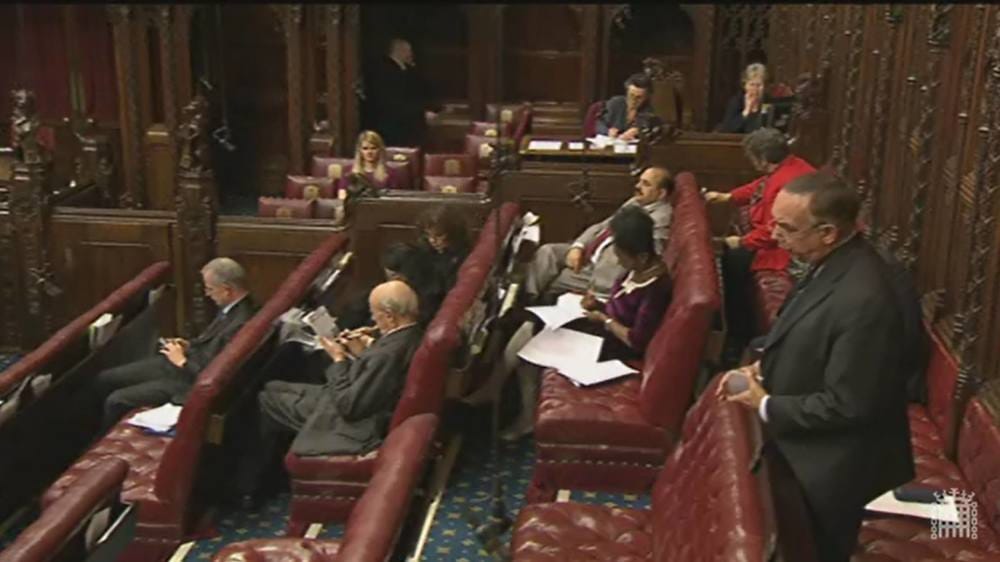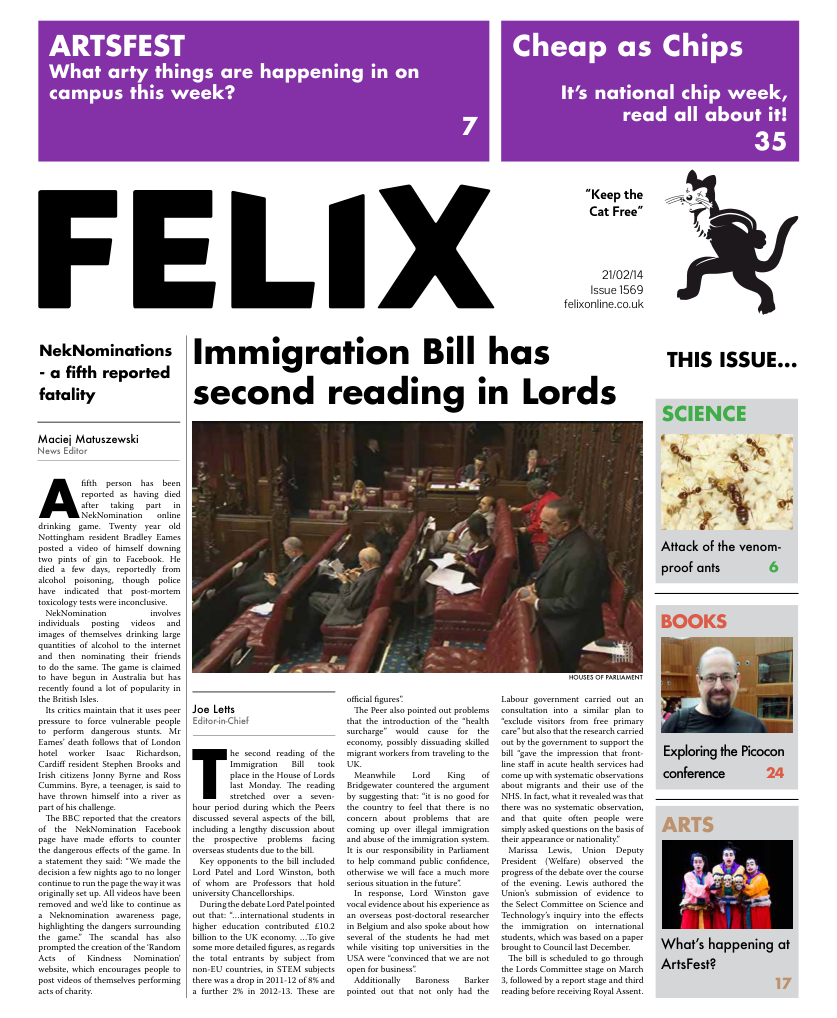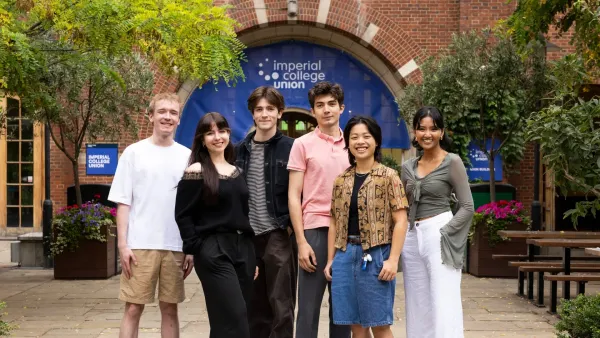Immigration Bill has second reading in Lords

The second reading of the Immigration Bill took place in the House of Lords last Monday. The reading stretched over a seven-hour period during which the Peers discussed several aspects of the bill, including a lengthy discussion about the prospective problems facing overseas students due to the bill
The second reading of the Immigration Bill took place in the House of Lords last Monday. The reading stretched over a seven-hour period during which the Peers discussed several aspects of the bill, including a lengthy discussion about the prospective problems facing overseas students due to the bill.
Key opponents to the bill included Lord Patel and Lord Winston, both of whom are Professors that hold university Chancellorships.
During the debate Lord Patel pointed out that: “…international students in higher education contributed £10.2 billion to the UK economy. …To give some more detailed figures, as regards the total entrants by subject from non-EU countries, in STEM subjects there was a drop in 2011-12 of 8% and a further 2% in 2012-13. These are official figures”.
The Peer also pointed out problems that the introduction of the “health surcharge” would cause for the economy, possibly dissuading skilled migrant workers from traveling to the UK.
Meanwhile Lord King of Bridgewater countered the argument by suggesting that: “it is no good for the country to feel that there is no concern about problems that are coming up over illegal immigration and abuse of the immigration system. It is our responsibility in Parliament to help command public confidence, otherwise we will face a much more serious situation in the future”.
In response, Lord Winston gave vocal evidence about his experience as an overseas post-doctoral researcher in Belgium and also spoke about how several of the students he had met while visiting top universities in the USA were “convinced that we are not open for business”.
Additionally Baroness Barker pointed out that not only had the Labour government carried out an consultation into a similar plan to “exclude visitors from free primary care” but also that the research carried out by the government to support the bill “gave the impression that front-line staff in acute health services had come up with systematic observations about migrants and their use of the NHS. In fact, what it revealed was that there was no systematic observation, and that quite often people were simply asked questions on the basis of their appearance or nationality.”
Marissa Lewis, Union Deputy President (Welfare) observed the progress of the debate over the course of the evening. Lewis authored the Union’s submission of evidence to the Select Committee on Science and Technology’s inquiry into the effects the immigration on international students, which was based on a paper brought to Council last December.
The bill is scheduled to go through the Lords Committee stage on March 3, followed by a report stage and third reading before receiving Royal Assent.




